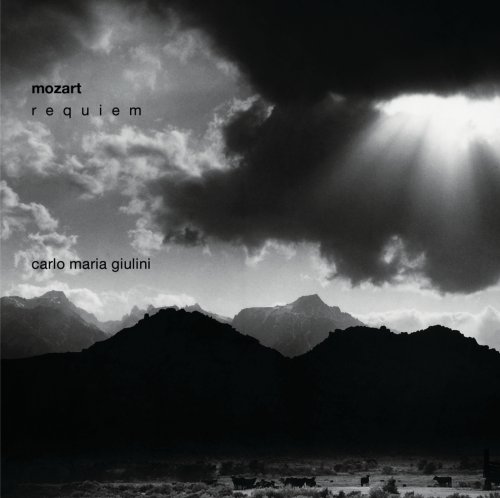The Philharmonia Chorus & Orchestra, Carlo Maria Giulini - Mozart: Requiem in D minor, K626 (2002)

Artist: The Philharmonia Chorus & Orchestra, Carlo Maria Giulini
Title: Mozart: Requiem in D minor, K626
Year Of Release: 2002
Label: Sony Classical
Genre: Classical
Quality: FLAC (tracks)
Total Time: 01:00:12
Total Size: 277 Mb
WebSite: Album Preview
Tracklist: Title: Mozart: Requiem in D minor, K626
Year Of Release: 2002
Label: Sony Classical
Genre: Classical
Quality: FLAC (tracks)
Total Time: 01:00:12
Total Size: 277 Mb
WebSite: Album Preview
Requiem in D Minor, K. 626 (Wolfgang Amadeus Mozart)
01. I. Introitus. Requiem aeternam - 00:05:24
02. II. Kyrie - 00:03:08
03. III. Sequentia - Dies Irae - 00:02:04
04. 2. Tuba Mirum - 00:04:40
05. III. Sequentia - Rex Tremendae - 00:02:51
06. 4. Recordare - 00:07:04
07. III. Sequentia - Confutatis - 00:03:16
08. III. Sequentia - Lacrimosa - 00:03:48
09. IV. Offertorium: 1. Domine Jesu - 00:04:25
10. 2. Hostias - 00:03:33
11. 3. Quam olim Abrahae - 00:02:09
12. V. Sanctus - 00:01:55
13. VI. Benedictus - 00:05:47
14. VII. Agnus Dei - 00:03:39
15. VIII. Communio - Lux Aeterna - 00:06:29
Performers:
Lynne Dawson (soprano)
Jard van Ness (contralto)
Keith Lewis (tenor)
Simon Estes (bass)
The Philharmonia Orchestra
The Philharmonia Chorus
Carlo Maria Giulini
The 2002 rendition of Mozart’s Requiem in D minor, K626, conducted by Carlo Maria Giulini and performed by The Philharmonia Chorus & Orchestra, is a remarkable interpretation of this timeless masterpiece.
Giulini’s first account of Mozart’s Requiem is grand and solemn, employing modern instruments and choice soloists. The slow movement is immaculately shaped and Giulini’s account of the finale is wholly convincing.
This performance is characterized by its depth of feeling, technical precision, and dramatic intensity. Each section of the Requiem is delivered with a sense of profound respect for Mozart’s composition, from the haunting ‘Dies Irae’ to the uplifting ‘Sanctus’.
However, some may find the performance lacking the thrust and sweep provided by other conductors like Karajan and Cantelli3. Despite this, the overall execution remains deeply moving and memorable.
In conclusion, this rendition of Mozart’s Requiem in D minor, K626, is a testament to the enduring power of Mozart’s music and Giulini’s insightful interpretation. It is a must-listen for any classical music enthusiast.
Giulini’s first account of Mozart’s Requiem is grand and solemn, employing modern instruments and choice soloists. The slow movement is immaculately shaped and Giulini’s account of the finale is wholly convincing.
This performance is characterized by its depth of feeling, technical precision, and dramatic intensity. Each section of the Requiem is delivered with a sense of profound respect for Mozart’s composition, from the haunting ‘Dies Irae’ to the uplifting ‘Sanctus’.
However, some may find the performance lacking the thrust and sweep provided by other conductors like Karajan and Cantelli3. Despite this, the overall execution remains deeply moving and memorable.
In conclusion, this rendition of Mozart’s Requiem in D minor, K626, is a testament to the enduring power of Mozart’s music and Giulini’s insightful interpretation. It is a must-listen for any classical music enthusiast.





![Vincent Segal & Roberto Fonseca - Nuit parisienne à La Havane (2026) [Hi-Res] Vincent Segal & Roberto Fonseca - Nuit parisienne à La Havane (2026) [Hi-Res]](https://www.dibpic.com/uploads/posts/2026-01/1769526917_folder.jpg)


